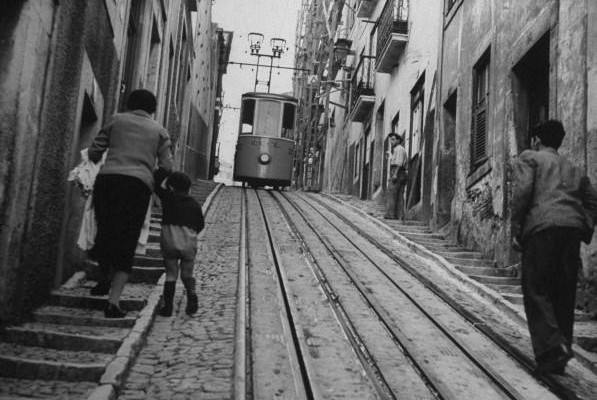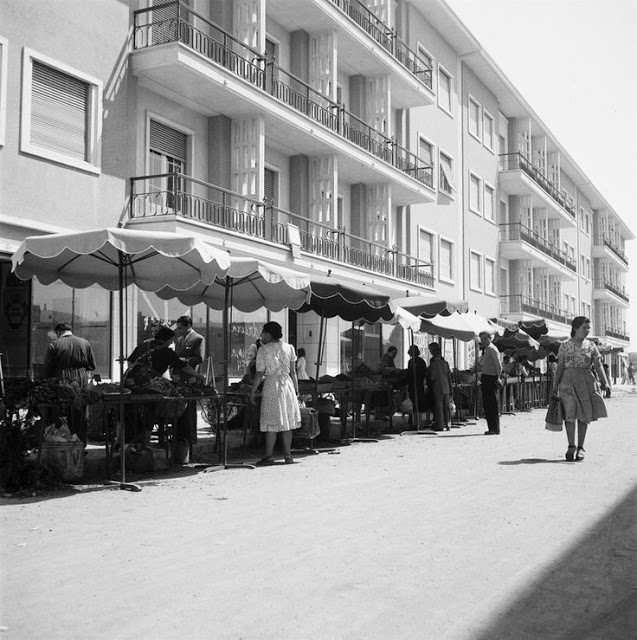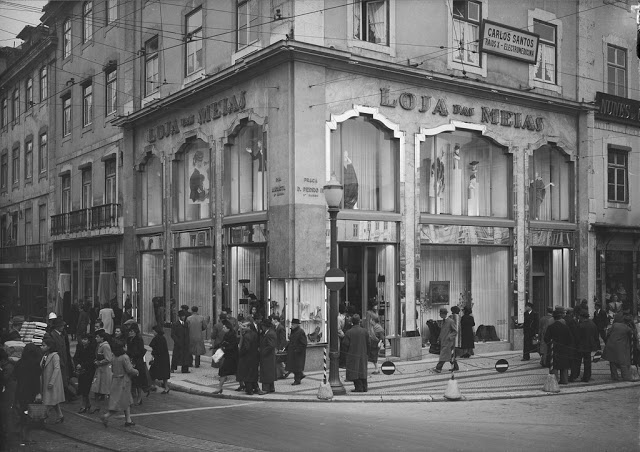Today librarians are expected to be the masters of database referencing technology. In 1942 the baseline was microfilm and specialists in the format suddenly found themselves the target of US Agency the IDC (the Interdepartmental Committee for the Acquisition of Foreign Publications).
Men and women skilled in the acquisition, cataloguing and reproduction of texts, drafted from Universities and Metropolitan libraries from across the USA, were dispatched to neutral European cities such as Stockholm in Sweden and Lisbon in Portugal.
It was not the expected outcome when President Franklin D Roosevelt agreed to the creation of the IDC, but its actions during the War provided the US with a broad range of essential intelligence material from a diverse network of sources. Librarians and book-buyers became cloak and dagger spies, gathering the printed word under the noses of fascist police and the German secret service.
The President of Portugal, António de Oliveira Salazar was a heavy-handed fascist dictator, sympathetic to the Nazi Axis while having signed a non-aggression treaty with Great Britain before the outbreak of war. He walked the line between the two European adversaries by declaring neutrality.
This position put the capital city, Lisbon at the crossroads of two worlds. As a balancing point between the Mediterranean and Pacific it thronged with foreign correspondents, traders, diplomats, spies and exiles from every nation.
It drew refugees looking for passage to Britain and the Americas, and intelligence agents hunting clues that might yield useful information that might help either side.
Book stores, newsagents and cafés were filled with the curious and the brave, ordering banned books and searching for censored magazines and newspapers.
People exchanged business cards declaring themselves to be Hollywood moguls, oil barons, or book buyers, but in wartime Lisbon it was possible for a person to be anything.
The press in Portugal lived under the disapproving gaze of the Dictatorship and was regulated by the secret police.
This situation turned rumour and gossip into currency and a hot-house information economy built up drawing in German, Japanese, British and American intelligence agents.
Disinformation and hearsay dominated the chatter, which made the printed word that much more important.

Newspapers were bought from the German Das Reich to the British Daily Express. Columns were interrogated to discover scandals that could be used by spies to unbalance the enemy, or news of troop movements analysed to uncover military intentions.
The US librarians of the IDC presented themselves as US officials seeking to document history as it occurred, for the Library of Congress, and other institutions, ‘naturally interested in preserving the records of the present crisis in our civilization.’
Using this cover, they were able to visit the venerable bookstores of Lisbon, such as the Livraria Bertrand, trading since the 1700s or the newer, more radical Papelaria Fernandes, which specialized in military publications.

The locals would help by ordering books and periodicals in their own names in exchange for banned US material such as Time and Life magazines. By 1943 the operations in Lisbon were in full swing with orders going out to Swiss booksellers just before the borders tightened and to Hungarian newspapers.
IDC agent, Ralph Carruthers, based in Lisbon was called upon to urgently source as many German newspapers as he could during Operation Torch, the Allied invasion of North Africa.
He told the intelligence services in Algiers to expect a maximum of four, but with help from resistance networks across Southern Europe ten papers arrived in Tangiers four days later.

The printed word, captured on microfilm, catalogued and shipped back for interrogation by other specialists helped the Allies to clarify evidence of production levels, scientific and engineering advances, even locations of regiments based upon the gossip in society columns.
American WWII Resistance Worker Dame Mary Barraco Dead at 96
This ingenious use of the organizational skill set of librarians delivered a war dividend wholly unexpected when the IDC was formed, but one which led to measurable results in the fight against the Nazi regime in WWII.
